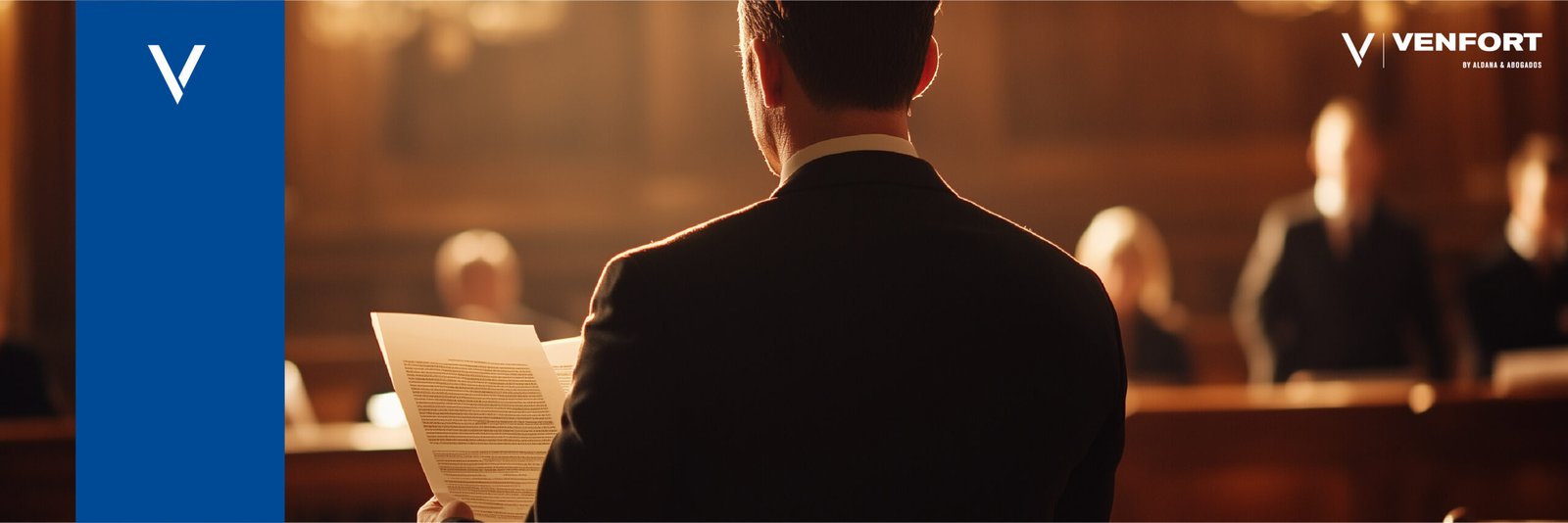To appeal an ICC judgment means to challenge before the ICC Appeals Chamber an adverse decision issued in the first instance. The good news is that any of the parties involved can exercise this remedy: both the prosecutor and the defendant (or convicted person) have the right to appeal a conviction or acquittal. For example, the prosecutor may challenge an acquittal on the grounds of "error of fact" or "error of law" in the judgment, while the defendant may appeal a conviction on the grounds of "procedural error" or any other ground affecting the fairness of the judgment. The Appeals Chamber may confirm, revoke or modify the appealed decision, and may even order a new trial if deemed necessary.
Appeals to the Appeals Chamber
In practice, the Appeals Chamber reviews both the final judgments as important interlocutory decisions. Specifically, judgments of conviction or acquittal (rendered under article 74 of the Rome Statute) may be appealed. Pre-trial decisions can also be challenged, such as those of jurisdiction/case assignmentIn addition, the Statute recognizes the standing of other interested parties: e.g., legal representatives of victims may appeal decisions on reparations, and a State involved in the preliminary phase may request to appeal decisions at that stage. In addition, the Statute recognizes the standing of other interested parties: e.g., legal representatives of victims may appeal decisions on reparations, and a State involved in the preliminary phase may request to appeal decisions from that stage.
As a defense attorney accredited before the ICC, I always emphasize that every legitimate subject must act independently. That is to say, the prosecutor, the accused (or convicted), the victims' representative or even a State (in cases of referrals) may file their own appellate briefs, each supporting their arguments and evidence. For example, in a hypothetical case of crimes against humanity, defense counsel could appeal a conviction arguing that the trial court improperly assessed the evidence; in parallel, the victims in the same case could separately challenge the amount of reparations awarded (art. 82.4). Each appellant should present his or her appeal separately, highlighting precise errors of law or fact in the appealed decision.
Strict deadlines and formalities
The ICC Statute and Rules of Procedure impose very rigid deadlines. In general appeal must be filed within 30 days from the notification of the challenged judgment or decision. This time limit is peremptory: if it expires without the appeal being filed, the judgment becomes final. To file an appeal, a brief is submitted to the Clerk of the Court stating the grounds (procedural defects, errors of evidence or law, etc.). In practice, our team prepares a detailed appellate brief, in which each disputed point is legally argued. The text must comply with the rules of form (language, format, signature of an accredited lawyer) and accurately reflect the facts and rules infringed. The Appeals Chamber may sometimes grant a short extension of time if requested in time, but in no case the term is extended beyond what is strictly necessary.
- Time limit: 30 days from the notification of the judgment, penalty or decision.
- Addressee: the appeal is filed in writing with the Clerk of the Court.
- Substantiation: must be based on specific errors of procedure, fact or law (e.g., defects in the evidence or in the interpretation of the law).
- Formalities: respect the official language (English or French), procedural format and be signed by a lawyer accredited before the ICC.
Participation of victims and observers
The ICC recognizes an active role for victims, including on appeal. The Statute guarantees that victims can submit their views and comments at the relevant stages of the proceedings, including the appeal. This means that, even if the appeal is filed by the prosecutor or the defense, the Chamber can receive input from the victims to learn their perspective. In addition, the legal representatives of the victims have an autonomous right to appeal. repair decisions issued by the court. In practice, we have seen cases where victims intervene as interested third parties, providing testimony on the impact of the crime. Likewise, the Court may authorize the presence of international observers or accredited NGOs to offer legal or humanitarian viewpoints, as long as they do not disrupt the rights of the defense. Taken together, these guarantees seek to balance the process: victims can have an impact on the appeal without compromising the due process of the accused.
Enforcement of judgments and subsequent review
Filing an appeal also has immediate practical effects. According to the statute, enforcement of the judgment is suspended during the appeal process. That is, the convicted person does not begin to serve the sentence (or remains at liberty under conditions) while the Chamber rules, unless the Chamber decides otherwise for exceptional reasons. If the appealed sentence is upheld in whole or in part, then the decision becomes final. However, there is an additional mechanism: if, after the sentence has been handed down, the following should appear new facts or decisive evidence that were not previously available, the ICC may admit a review ex officio or at the request of the parties. This extraordinary procedure makes it possible to reopen final cases to ensure full justice.
In short, a negative decision at the ICC is not the end of the road. With a specialized defense - made up of lawyers accredited before the Court - all available avenues of appeal and review can be exhausted. Our experience shows that by preparing the appeal well (and providing solid factual and legal arguments) it is even possible to have convictions overturned or illegitimate evidence overturned. Maintaining deadlines, properly documenting the errors of the trial court and taking advantage of victim participation are key to regain control of your defense before the ICC.
In conclusion, to receive an adverse decision from the International Criminal Court is not the end of the process. The Rome Statute provides clear tools for challenging judgments, preliminary rulings and remedies. Know more at how and when to exercise the right of appeal -And doing so with sound legal arguments can make the difference between an irreversible conviction and an effective defense.
At VENFORTwe have lawyers accredited on the official list of counsel and representatives of victims before the International Criminal Courtwith proven experience in appellate proceedings offering comprehensive strategies and technical expertise at the highest level.
If you or your family are facing proceedings before the ICC, or wish to appeal a decision that affects you, our team is prepared to represent you with firmness, experience and procedural legitimacy before the highest international criminal court.













